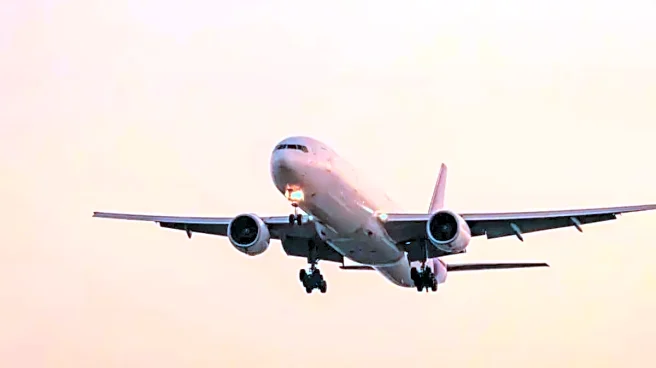As air travel grows busier, pilots and crew often face long hours and tight schedules, raising concerns about fatigue. To tackle this, the Directorate General of Civil Aviation (DGCA) has introduced new
rules mandating fatigue training and reporting for all airlines.
The policy aims to help pilots and cabin crew better understand how rest, duty hours, and sleep cycles impact their performance. These regulations come amid changing flight patterns, including more night landings and increased long-haul operations, especially for aircraft like the Boeing 777.
DGCA Lays Out New Training Rules
The DGCA has made it mandatory for all airlines to provide at least one hour of annual training on fatigue and its effects on pilots and crew members. This decision followed a meeting in New Delhi attended by representatives from airlines and pilot bodies, where duty timings and rest limits were discussed.
The training must cover flying-hour regulations, duty periods, and rest break protocols. Crew members will also learn about sleep cycles and how factors like irregular schedules, jet lag, and night shifts disrupt the body’s natural rhythm. Additionally, medical conditions that contribute to fatigue must be addressed.
Airlines are required to educate crew members on how long-haul flights, short trips, and shifting time zones can impact alertness. The training must also cover lifestyle factors such as diet, exercise, family routines, and sleep disorders.
Additionally, the DGCA has recommended that schedulers and dispatch teams participate in the annual training, as their planning decisions have a direct impact on crew fatigue.
New Steps On Reporting Tiredness
The DGCA now requires every airline to establish a formal fatigue-reporting system, allowing crew members to report when they are too tired to fly without fear of punishment.
Airlines must also form an independent Fatigue Review Committee to analyse these reports, determine necessary actions, and recommend improvements.
Additionally, airlines are required to submit a fatigue report to the DGCA every three months. This report should detail the number of crew members trained, the number of fatigue reports filed, and which reports were accepted or rejected, along with the reasons for those decisions.
If a crew member reports fatigue, the DGCA mandates that they receive at least 24 hours of rest, including one local night.
Why These Rules Were Needed
The DGCA strengthened these guidelines after a July audit revealed confusion among some airlines regarding the existing rules. Pilot groups had previously expressed concerns that easing duty limits and permitting more night landings could compromise safety.
Some airlines initially resisted the DGCA’s decision to increase weekly rest periods to 48 hours and impose limits on night landings, but the Delhi High Court later upheld these rules, making them mandatory.


/images/ppid_a911dc6a-image-177080097002874057.webp)

/images/ppid_a911dc6a-image-177080093159334115.webp)
/images/ppid_a911dc6a-image-177080056067494154.webp)
/images/ppid_a911dc6a-image-177080052363846330.webp)


/images/ppid_a911dc6a-image-177080030784122789.webp)
/images/ppid_59c68470-image-1770800102429727.webp)

/images/ppid_59c68470-image-177080023164487249.webp)
/images/ppid_59c68470-image-177080013292274345.webp)
/images/ppid_59c68470-image-177080007078239409.webp)